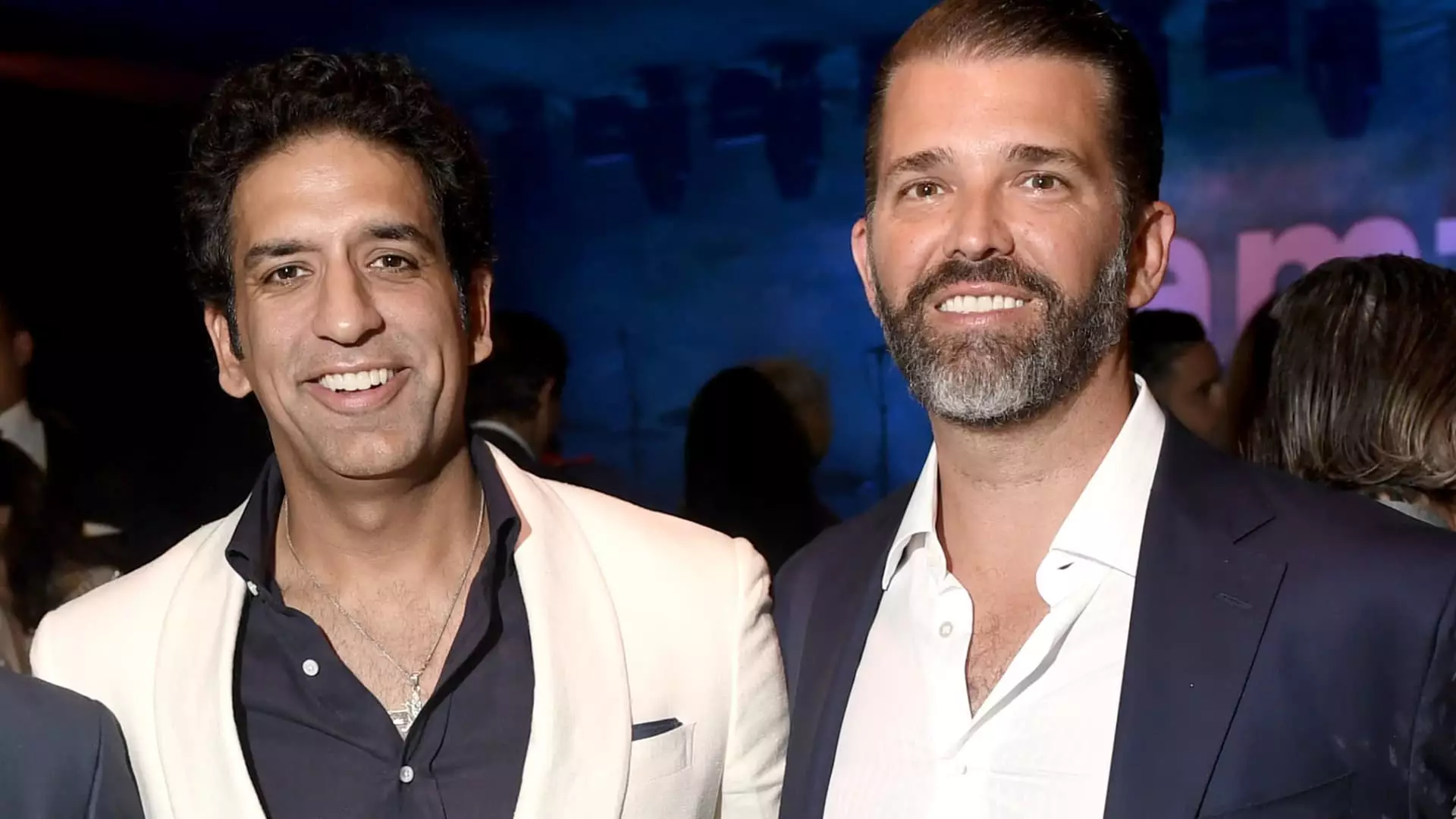As we navigate an era fueled by division and discontent, a striking new establishment is making waves in Washington, D.C., a city already characterized by contentious politics and privilege. Enter Executive Branch, a private membership club co-founded by Donald Trump Jr., which charges a staggering $500,000 for entry. The exclusivity of this venture, while enticing for some, raises uncomfortable questions about what it means to belong to a select group that creates an echo chamber for certain ideologies and interests. At its core, Executive Branch is not just a membership club but rather a symptom of a broader societal tendency towards elitism.
The allure of exclusivity often serves those in powerful positions; a privileged few enjoy access to spaces where political discourse and strategies unfold far from the public eye. The members’ roll includes high-ranking officials and influential business figures, all of whom hold considerable sway in their respective domains. While the founders assert the goal is “to foster connection,” the implications of restricting that connection to affluent elites only serve to further entrench systemic inequities.
Branding, Politics, and Power Dynamics
Since its launch, Executive Branch has attracted attention not only for its exorbitant price but also for its potential role within the socio-political landscape of Washington, D.C. Members include figures like Secretary of State Marco Rubio and cryptocurrency czar David Sacks, bolstering the perception that this club could rival the infamous Trump International Hotel as the go-to hub for political maneuvering. However, this intersection of wealth and politics is concerning. The concentration of influence in a club like Executive Branch can shape policies and political narratives behind closed doors, effectively creating a two-tiered system where everyday citizens remain unheard.
In a moment when political transparency is more imperative than ever, the rise of clubs like Executive Branch furthers alienation among the average voter. The club’s whispered vetting process hints at a gatekeeping mentality, where members are selected based on alignment with specific interests rather than merit. Ostensibly, this point of view— voiced by insiders that “we don’t want just a lot of lobbyists joining”—is concerning and problematic. It risks creating a new ‘old boys’ club,’ where influence can be traded in exchange for exorbitantly priced fees, leaving out diverse perspectives and experiences.
The Impact of Wealth on Social Dynamics
The dramatic escalation of such membership fees alludes to a perceived need to cultivate an atmosphere for the wealthiest, pushing out the middle-ground voices that are essential to societal progress. D.C. is increasingly becoming a city where elite networking trumps grassroots organization. This is problematic, especially as we strive for democratic engagement—the notion that everyone should have a voice in shaping the society we live in. Sadly, clubs like Executive Branch exemplify a dangerous trend that prioritizes wealth over representation.
A waiting list for membership already signifies demand, drawing the attention of high-profile individuals who may wield significant influence over public policy, financial markets, and technological advancement. In an environment where decisions made by these elites could heavily impact the lives of ordinary citizens, one must question whether spaces designed for elite engagement can truly represent a holistic view of the society they inhabit.
What Lies Beyond the Glittering Facade?
The launch party was a spectacle filled with the trappings of power, but beyond the glitz lies a troubling truth: a club operating under the guise of camaraderie among political elites may serve more as a fortress against scrutiny. With its carefully selected members, Executive Branch has the potential to fortify existing power structures rather than dismantle them, perpetuating cycles of inequality.
In a world where change is desperately needed, the existence of such clubs raises pertinent questions about what priorities are truly being celebrated. Are we condoning a retreat into isolation for the richest among us when we should be demanding that they engage critically with the larger society? Executive Branch, with its hefty membership fee and exclusive gatherings, presents a challenge we must confront head-on; the cost of connectivity should not diminish the voices of those who are disenfranchised. The question remains: Will the promise of influence deliver real progress, or will it simply serve as a glittering distraction from the pressing issues that demand our immediate attention?

